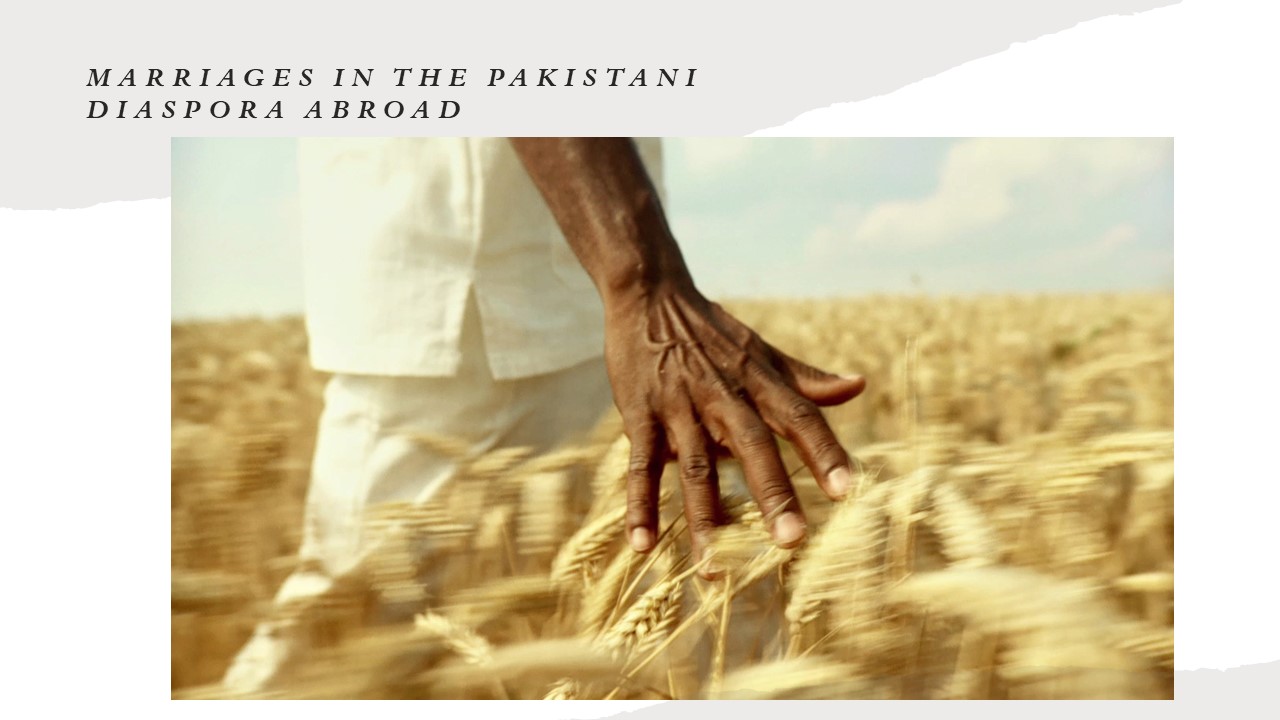The Pakistani diaspora in other countries often has the same conservative views on marriage as Islamic culture in Pakistan. Traditional Pakistani households and family unions have formed and run as endogamous marriages for many centuries.
In the arranged marriages, the children’s parents or other senior relatives arrange all matrimonial issues for the sons and daughters. They select a prospective bride or groom. They organize the children’s weddings and continue to be involved in many of the relationships in their new families.
Since the family structures are not nuclear, they all feel like part of their large extended family, which is interdependent in many respects. The matters of family life are to fulfill the duties and responsibilities for the practical issues of subsistence and wealth. Arranged marriages are effective in ensuring social and economic survival, security, stability, and affluence.
Love works as the pragmatic love of serving each other and being responsible for each other, rather than an interpersonal relationship and emotional intimacy. Love is just a romantic phantasy and dream. It is for leisure entertainment rather than for real life.
The Time of Change in Pakistani Culture
However, in the last few decades, a lot of social and economic changes have occurred in Pakistani society. As a result, many Pakistanis’ cultural views on marriage have shifted toward modern beliefs and attitudes about family roles and marital relationships. Former social and economic pressures have waned, while the importance of interpersonal relationships has grown. Subsequently, contemporary understanding of arranged marriages shifted towards a better acceptance of interpersonal attraction and love between partners in such marriages.
Yet, some people in Pakistan are still conservative and not very receptive to these new cultural tendencies in their perception of family, marriage, and interpersonal relationships. They resist these progressive advancements. They are less ready to adopt these open-minded cultural perspectives.
Conservative Pakistani Diaspora Abroad
It is worthy of note that some Pakistani families and communities living in other countries, such as the US and Canada, can be strictly conservative in their attitudes toward marriage. The Immigration and Refugee Board of Canada (2019) witnessed such abusive cases among the immigrants in the Pakistani diaspora. For example,
“If the husband’s family does not approve of the marriage, it could encourage the husband to be physically or psychologically abusive toward his spouse, a situation that could result in divorce or murder. Sometimes, the husband’s family physically abuses the wife”
(p. 2).
It looks like the family is attempting to get revenge. Other times, they are dissatisfied with the care or attention given to their child’s spouse. They believed that the daughter-in-law was meant to move into the home to look after them (as they did for their in-laws), rather than enjoy her life with her husband and start a family. Besides, when parents choose a daughter-in-law or son-in-law, they assume the couple will work things out and stay married no matter what problems come up.
In another case, when their son or daughter finds a partner for themselves, parents may encourage them to separate and go their separate ways, even if the couple has no problems. For parents, it is challenging to comprehend that their child is now married and that everything should move on. Nevertheless, the nagging parents may frequently grumble at their married children that
“this would never have happened if you had married so-and-so” or “this is why I told you to marry so-and-so and not this girl.”
(Ahmed, 2021, p. 7).
The Proper Understanding of Pakistani Islamic Culture?
Zara Ahmed believes that the mentality of Pakistani people should evolve and accurately understand their cultural religion of Islam. It is not correct to use religion to cover their actions without a proper understanding of religion. It is painful to learn that by hurting others, you serve the Islamic faith. It is disheartening when people do things like this while saying they are following God (Ahmed, 2021).
The new generation of adults is attempting to make their voices heard and properly understand Pakistani culture and the teachings of Islam. As Ladly (2012) noted, young adults are increasingly asserting their rights against the traditions of forced marriage and parental authority. Thus, they are implicitly challenging one of the most powerful institutions in Pakistani society.
They should be able to transform Pakistani culture and shape more open and accepting attitudes towards marriage. There should not be a contradiction between arranged marriages and love marriages. Love is compatible with family values.
